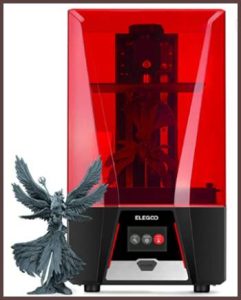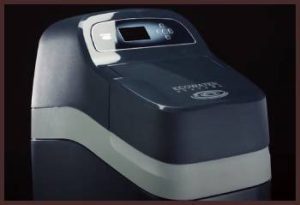Pressure washers are a useful tool for cleaning patios, driveways, decks, houses, cars, and more. With the ability to blast away dirt, mold, and grime, they make cleaning projects quicker and easier.
Two popular pressure washer brands on the market are Westinghouse and Simpson. But which is better for your specific needs?
In this comprehensive guide, we’ll compare Westinghouse and Simpson pressure washers to help you determine the right one for you. We’ll look at key factors like power, performance, features, design, durability, and cost.
Whether you’re cleaning concrete, washing your car, stripping paint, or tackling other outdoor projects, read on to find your perfect pressure washer match.
A Brief Comparison Table
| Feature | Westinghouse | Simpson |
| Power | 1300-2000 PSI electric models | 2000-4000 PSI gas & electric models |
| Pump Type | Axial cam pump | Axial & triplex plunger pumps |
| Accessories | Onboard soap tank, adjustable nozzles | Extensive accessories like turbo nozzles, surface cleaners, foam cannons |
| Durability | Quality components but not heavy-duty | Industrial strength, rugged, commercial-grade |
| Design | Compact, 30-50 lb., 2 wheels | Professional cart assembly, easy to maneuver |
| Cost | $150-$350, affordable for most homeowners | $300-$2000+, significant investment |
Key Takeaways:
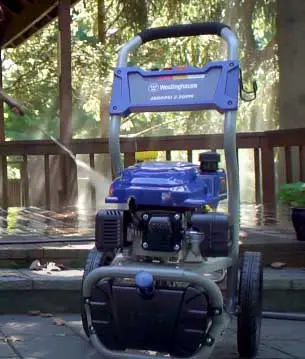
- Power – Westinghouse offers 1300-2000 PSI electric models suitable for home use. Simpson has 2000-4000 PSI gas and electric models with more cleaning power.
- Pumps – Westinghouse uses axial cam pumps that provide reliable water flow. Simpson uses heavy-duty axial and triplex plunger pumps built for durability.
- Features – Westinghouse has handy onboard soap tanks and basic accessories. Simpson offers more accessory options for increased versatility.
- Durability – Westinghouse washers are decent quality but not made for heavy use. Simpson builds rugged, commercial-grade models.
- Design – Westinghouse has compact electric models for homeowner maneuverability. Simpson offers superior professional-level wheel assemblies.
- Cost – Westinghouse costs $150-$350, affordable for most basic residential needs. Simpson costs more but is a worthwhile investment for frequent intense use.
- For average homeowners, Westinghouse provides good affordable options for light cleaning tasks.
- For frequent/demanding use, Simpson offers superior power, durability, and versatility despite higher costs.
- Let your specific cleaning needs and budget determine which brand is the better choice.
Also Read: Comparison of Generac And Simpson Pressure Washers.
Overview of Westinghouse Pressure Washers
Westinghouse is a well-known brand name associated with appliances, electronics, and outdoor power equipment. Their pressure washers are designed for residential use by homeowners tackling typical outdoor cleaning tasks.
Key features of Westinghouse pressure washers include:
- Electric-powered models ranging from 1300 to 2000 PSI
- Axial cam pumps known for reliability
- 25-35 foot cords for maneuverability
- 30-45 degree adjustable spray wands
- Onboard soap tanks and nozzles for applying detergent
- Lightweight and compact size
- 1-2 year limited warranties
Westinghouse pressure washers cater towards affordability and convenience for the average homeowner. They may lack some of the power and durability of commercial models, but get the job done for most light-duty applications.
Overview of Simpson Pressure Washers
Simpson is a major brand in the pressure washer industry, manufacturing models for both residential and commercial/industrial use. They are known for making high-quality pressure washers built to last.
Key features of Simpson pressure washers include:
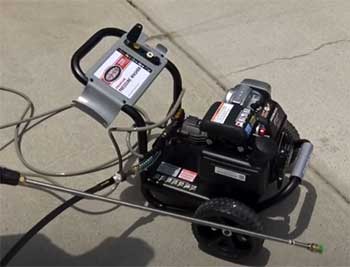
- Gas engine and electric models from 2000 to 4000 PSI
- Durable axial and triplex plunger pumps with brass heads
- 10-15 gallon fuel tanks on gas models for extended run time
- Flat-free tires for easy maneuverability
- Insulated trigger guns and wands
- Professional-grade components and accessories
- 2-7 year limited warranties
Simpson offers a full range of pressure washers designed for everything from cleaning your patio furniture to stripping paint off commercial buildings. They are built with professional use in mind, but many residential models are also available.
Key Differences Between Westinghouse And Simpson Pressure Washers
Now that we’ve provided an overview of each brand, let’s compare them across some key factors you should consider when choosing a pressure washer.
Power and Performance
Power output is measured in PSI (pounds per square inch) and relates to the water pressure generated. Higher PSI enables better cleaning, but more power isn’t always necessary.
- Westinghouse – Offers electric models in 1300, 1600, 1800, and 2000 PSI strengths. Suitable for light-duty home projects.
- Simpson – Models range from 2000 to 4000 PSI. Includes electric and gas engine options appropriate for heavy-duty residential or commercial use.
For home use, Westinghouse’s PSI capabilities are sufficient for typical projects like patio and driveway cleaning. Simpson offers the power needed for tougher tasks like removing oil stains from concrete, stripping paint, and more intensive residential or commercial purposes.
Pump Types
The pump is the heart of a pressure washer, feeding and pressurizing the water flow.
- Westinghouse – Features reliable axial cam pumps made of durable brass and stainless steel components. Provides consistent water flow.
- Simpson – Uses top-of-the-line axial and triplex plunger pumps with all-brass heads. Triplex models provide very high pressure with minimal pulsation for steady water flow.
For home use, axial cam pumps are usually adequate. But Simpson’s more heavy-duty triplex pumps offer longer life, easier maintenance, and consistent high pressure for demanding jobs.
Also Read: Is Ryobi Better Than Greenworks Electric Pressure Washer?
Features and Accessories
Convenient features and accessories can enhance functionality and make cleaning jobs easier.
- Westinghouse – Models include handy onboard detergent tanks, adjustable nozzles, and 30-45 degree pivot wands. Lacks accessories like turbo nozzles or surface cleaners.
- Simpson – Extensive accessory options like turbo nozzles, rotary surface cleaners, foam cannons, longer hoses, and more for increased versatility. Models also have handy onboard soap tanks.
While Westinghouse includes useful features, the wider range of accessories from Simpson provides greater flexibility for tackling any cleaning job at home or on the job site.
Durability and Construction
A pressure washer’s lifespan depends on the durability of its components.
- Westinghouse – Units are constructed from quality materials including copper, brass, aluminum, and stainless steel that resist corrosion and everyday wear-and-tear. But not built for prolonged heavy-duty use.
- Simpson – Models feature industrial-strength metal frames, brass pump heads, and premium components selected for commercial-grade durability. Designed to withstand frequent tough use in rugged conditions.
When properly maintained, Westinghouse washers can provide years of reliable service around the home. But for sustained heavy use under intense conditions, Simpson’s beefier construction is a better choice.
Design and Maneuverability
A pressure washer’s handling impacts your cleaning experience.
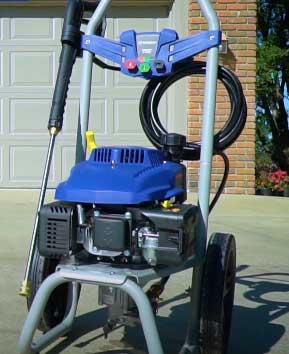
- Westinghouse – Compact and lightweight electric models around 30-50 pounds. Shorter cords may require frequent repositioning. Two wheels with balanced body design.
- Simpson – Professional cart-style wheel assembly ensures easy rolling over any terrain. Low centers of gravity. Insulated trigger guns and wands prevent operator fatigue.
Westinghouse electric models are fairly easy for one person to maneuver for home use.
Simpson offers superior design refinements that allow effortless mobility even for large commercial units.
Cost Comparison
Pressure washer prices range widely based on type, power, and features:
- Westinghouse – Typically $150 to $350 for electric models suitable for home use. Offers affordable options for most basic residential cleaning purposes.
- Simpson – Entry-level home models start around $300, ranging up to $2,000+ for commercial-grade gas engine models. Significant investment, but built to last.
Westinghouse provides the best value for the average homeowner looking for an electric washer to handle occasional tasks. Simpson costs more but offers greater power and durability for frequent/demanding use.
To summarize, Westinghouse pressure washers win on affordability while Simpson offers superior performance, durability, and versatility. Let your specific needs and budget determine which brand is a better fit.
Also Read: Comparison of Westinghouse And Ryobi Pressure Washers.
Frequently Asked Questions (FAQ)
Yes, Simpson makes very high-quality pressure washers built for reliability and durability. They use top-tier components from reputable brands and their products are designed for commercial-grade toughness. Many contractors and cleaning companies choose Simpson for demanding, frequent use.
For most homeowners, Westinghouse electric models provide a great affordable option for typical residential cleaning jobs. But professionals and power users may benefit from the extra capabilities of Simpson gas engine models that provide more PSI, longer run times, and heavy-duty construction.
Simpson is manufactured by the longstanding U.S.-based company FNA Group. All Simpson pressure washers and accessories are engineered and assembled at FNA Group factories in the United States. This allows them to closely control quality and quickly implement innovations.
Westinghouse pressure washers are exclusively electric models. They use an electric motor rather than gas engine. This makes them more compact and lightweight compared to gas models, while also being more eco-friendly and easier to maintain since there is no engine oil to change. Electric models can also be used safely indoors unlike gas pressure washers.
Closing Remarks
So in summary, for most homeowners doing occasional exterior cleaning, a Westinghouse electric model will get the job done. But professionals and serious DIYers may benefit from the extra power and durability offered by Simpson gas engine pressure washers.
Whichever you choose, make sure to follow safe pressure washing practices to prevent injury and damage. With the right pressure washer, you can blast away dirt and grime to renew your home’s exterior surfaces.

